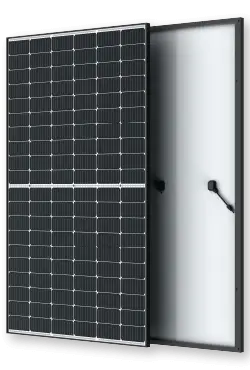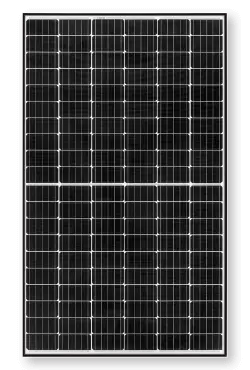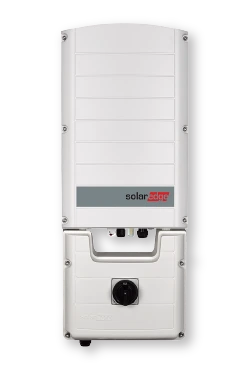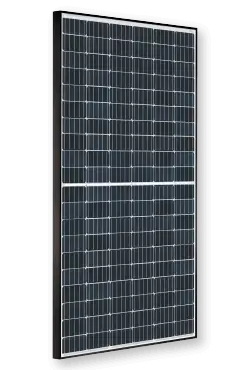Be Safe, Queensland - We Are Always Here to Support You!
How Technological Innovations Are Revolutionizing Solar Energy in Australia?

08 July, 2024.

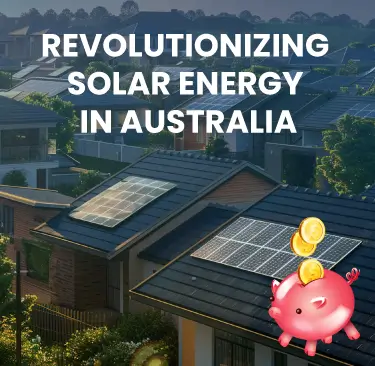
Australia has seen an explosive rise in the use of solar energy in recent years. The popularity of solar energy in Australia has revolutionized the use of renewable energy sources and has emerged as the most promising option for building a sustainable future. This is because solar energy is a renewable energy source that significantly lowers greenhouse gas emissions and prevents climate change. All of this contributes to safeguarding the ecosystem, wildlife and people. Not only that, it brings financial advantages to households and businesses. Before you decide to invest in one, let's find out how technological innovations are revolutionizing it.
Technological Advancements
With innovations and discoveries, solar technology has advanced significantly in recent years. All of this contributes to a potential decrease in costs, increasing efficiency and improving environmental friendliness. To understand what these recent technological advancements are, read below:
- #1. Smart Inverters : The introduction of smart inverters can be seen as having somehow impacted improving the energy output. Additionally, it has also helped in grid integration.
- #2. Artificial Intelligence : AI is playing a crucial role in solar technology. Artificial Intelligence can be used to control grid systems and optimize energy production and consumption. Also, it can even anticipate system breakdowns before they happen.
- #3. Development in Solar Cell Materials : Improvements in solar power technology have also affected the materials used to make solar cells. Some of these include Thin film solar cells as they are cheaper and lighter compared to traditional silicon cells. The other one is Perovskite solar cells which are known to increase energy output, need reduced material cost and are cheap.
- #4. Solar Batteries : Solar batteries can be expected to store more power which allows individuals to use renewable energy even during the night.
- #5. Solar Tracking Technology : Solar tracking technology has been introduced, which allows the solar panels to follow the sun's path during the day and enhance efficiency. This means you will get a good amount of electricity throughout the day.
Environmental Benefits
An increased number of households and businesses are opting for solar energy in Australia. This is not only because it brings significant savings and a backup plan when there's no electricity source but also because it leaves great environmental benefits behind. Some of these include the following:
Lowered Dependency on Fossil Fuels
When solar energy is used, it produces electricity harnessing the sunlight. This somehow lowers the dependency on fossil fuels like coal, natural gas and more which run out quickly. Also, these fossil fuels hurt the environment like air pollution.
Reduced Greenhouse Gas Emissions
The reduction of greenhouse gas emissions can significantly be achieved by producing energy using solar power as it is more eco-friendly than fossil fuels. While burning fossil fuels releases gasses into the atmosphere which causes climatic change and global warming. It also helps in lowering carbon footprint.
Slow Down Climatic Change
Solar energy does not contaminate the air or water, unlike traditional power sources. They harness light from the sun and produce the energy required to carry out tasks in residential or commercial spaces. As they do not rely on fossil fuels of any kind nor create environmental pollution, it somehow slows down the climatic change.
Promote Sustainable Future
Sustainable development aims to strike a balance between economic, social, and environmental factors. This ensures to creation of a better future for everybody. Creating a society where everyone has access to the means to live honourable lives without putting the environment in jeopardy is the aim. And by relying on this sustainable energy, a sustainable future can be promoted.
Economic Impact
When a sustainable energy source like solar energy is opted for, it can bring several benefits for individuals, communities and even the planet itself. As solar energy saves electricity costs, it has appeared as a beneficial option for households. Additionally, its existence is causing employment opportunities to expand five times faster than ever.
The need for solar panel manufacturers, suppliers, mechanics, installers, sales, logistics and others is drastically increasing. There is also importance given to depending on the local labour, creating employment opportunities for people from all backgrounds.
These businesses, which operate in both small and large communities are essential to local economies. This intentional focus on localized employment benefits metropolitan places as well as rural communities. As a result of this, sustainability and economic growth can be seen to be promoted in several ways.
Government Policies and Incentives
The Australian Government promotes the use of renewable energy and the reduction of greenhouse gas emissions for homes and businesses. For this reason, state and federal solar energy rebates are offered to lower the cost of establishing a solar panel system.
It is known that the Government offers a solar panel PV rebate which is a discount of up to 50% of the purchase price of solar panels for installation up to a maximum of $1,400. This is computed following the use of any additional discounts like small-scale technology certificates and more.
Up to $ 8,000 can be expected to be allocated by the Australian Government towards the installation of solar power systems in residential and business spaces. Applications for $50,000 scholarships for 2 kW solar panels are open to schools. All of these are done to promote energy transition in Australia. Furthermore, to name a few, there are specific government policies and incentives like:
- #1. Small-scale renewable energy scheme
- #2. Instant asset write-off
- #3. The large-scale renewable energy target, and many more.
Future Prospects
The market of solar energy in Australia is expanding quickly and is expected to anticipate more people to use it in the upcoming years.
Besides being creative, it creates a significant number of jobs, advances technology, positive effects on the environment, and sustainable energy infrastructure alongside stimulating economic growth.
Saying this, it would not be wrong that installation of solar systems will become more accessible for both people and businesses as the cost of solar panels keeps declining.

Brands We Install
Harness Renewable Energy and Reduce Carbon Footprint
Power Up
Your Savings



